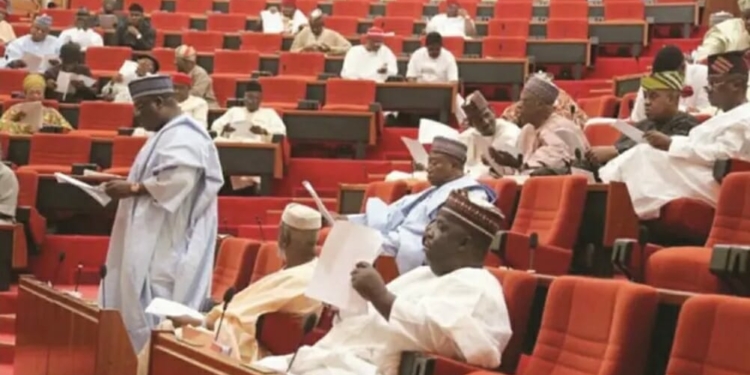President Muhammadu Buhari transmitted the Finance Bill to the National Assembly for approval, and the Senate has started to review it.
The 2023 Appropriation Bill, which will be discussed and enacted the following week, is anticipated to include the Finance Act modifications.
The 2020 Appropriations Act, passed by the 9th National Assembly, restored the budget cycle of January through December, and this Finance Bill is the fourth in the series to do so.
Speaking yesterday in Abuja when she appeared before the Senator Olamilekan Adeola, APC, Lagos West led Senate Committee on Finance to defend the amendments propsed to the 2022 Finance Act, Minister of Finance, Budget and Economic Planning, Mrs Zainab Ahmed highlited the key provisions in the Finance Act 2022 to include the change of name of the Federal Inland Revenue service to the Nigeria Revenue Service
According to her, the amendment also include the reorganisation of the board of the Federal Inland Revenue Service by separating the executive management from the board
The Minister said, “The Chairman of the agency will now be referred to as Commissioner General.”
The amendment also proposes the 35 per cent on Electronic money transfer levy receipt to be paid to local government as against Initial 15 per cent to the Federal Government and 85 let cent to state, just as it proposes 50 per cent tax increase from the 30 let cent to companies involved in Gas flaring among others.
Earlier in his remarks, Chairman of the Senate Committee on Finance, Senator Adeola who explained that the bill generally seeks to review and possibly amend sections of existing legislations on revenue for the nation, said, “The intent of these amendments is not only for generating increased revenue for the government but also providing clarity, removing ambiguities, providing succor for deserving persons and sectors as well as bringing our laws up to speed with global best practices.
“Let me restate that in our nation’s legislative development, the way forward at present is not much about enacting new laws as much as amendments of old laws to take care of new realities and reform observed shortcomings in the implementation of existing laws.
“Such new realities include the development of new technologies and its implications for revenue/income generation by individuals, corporate bodies and government agencies.
“This among other realities and observed challenges are the rationale for the yearly amendments contained in proposed Finance Bill.
“In the bill referred to the Committee, a total of 10 existing Acts are proposed for amendments namely:
“Capital Gains Tax Act, Companies Income Tax Act, Customs, Exercise Tarrif, etc (Consolation) Act, Federal Revenue Service Establishment Act e Personal Income Tax, Petroleum Profits Tax Act, Stamp Duties Act, Value Added Tax Act, Corrupt Practices and other Related Offences Act, Public Procurement Act
“In all 34 Sections of the various Acts are in the bill before us for consideration and possible amendments.
“We are to understand that our economy is facing serious challenges occasioned by many factors including crude oil theft, armed insurgency and banditry as well as spiraling inflation rate that are being tackled by the government.
“The expectation is that at the possible passage of these amendments and its faithful implementation, our country can be propel toward appreciable economic outlook.”








Discussion about this post